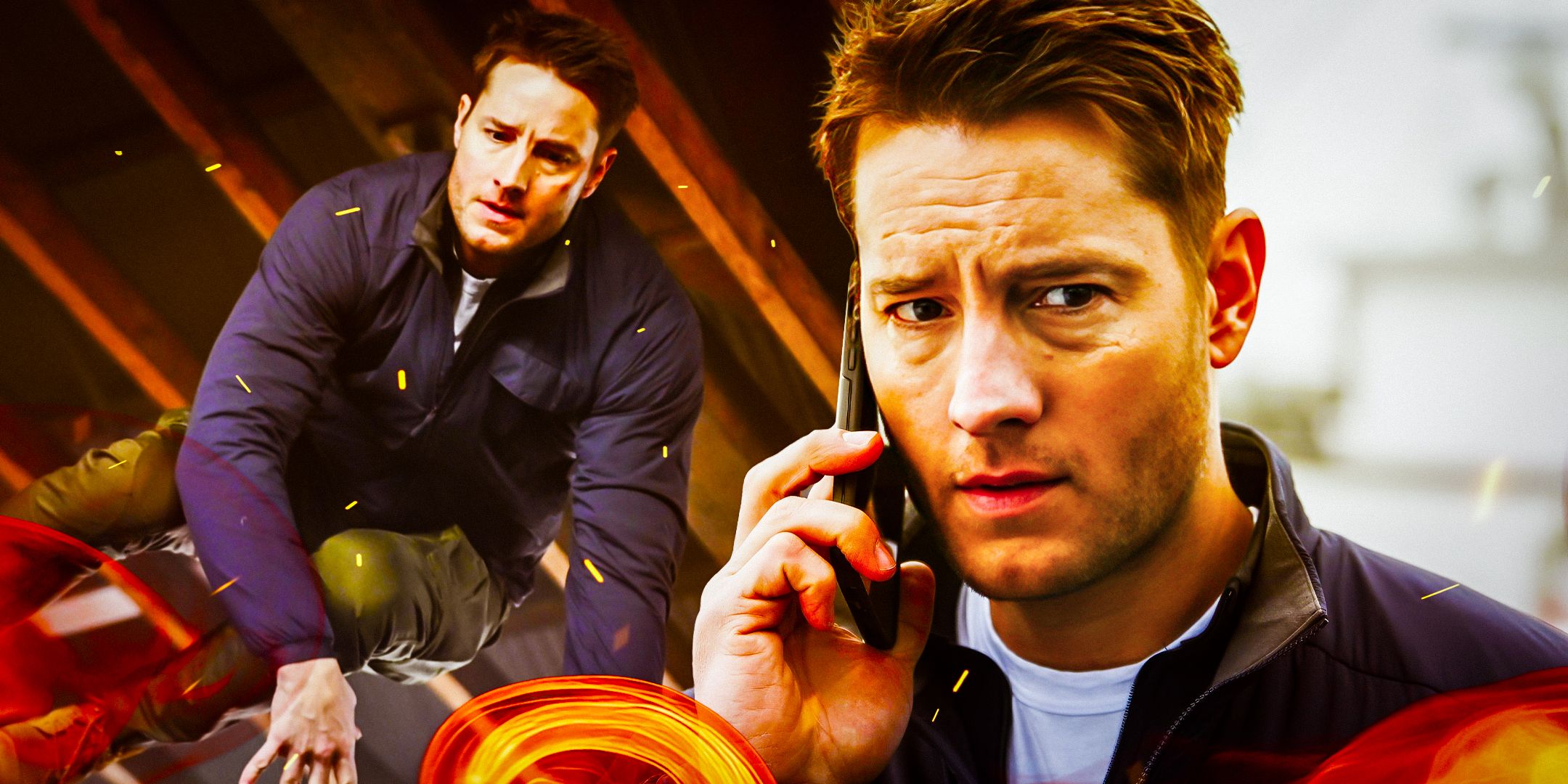Ever wonder about those who seem to find anything, anyone, anywhere? It's a rather fascinating idea, this skill of discovery, a sort of special awareness that helps piece together clues. We often hear about people like Colter Shaw, a character known for his unique ability to locate what's lost, and it makes you think about what goes into such a pursuit. You know, it's more than just following footprints; it's about connecting dots that others might miss, almost like seeing a hidden pattern in the everyday.
When we talk about someone like a "colter shaw sister tracker," it stirs up thoughts of family ties, of someone with a similar knack for finding things, perhaps even working alongside them. It brings to mind the idea of shared talents, of a natural ability passed down or honed together. This particular phrase, in a way, points to a deeper connection, maybe a bond that makes the search even more personal or urgent. It's a very human element woven into the act of discovery, really.
The idea of a "tracker" itself holds a lot of weight, suggesting someone who understands the subtle signs of the world, someone who can read the unspoken stories left behind. Whether it's a person, a piece of information, or a lost object, the process of finding it relies on keen observation and a certain kind of insight. It’s a skill that has roots deep in our history, stretching back to times when finding things was absolutely vital for survival, as a matter of fact.
Table of Contents
- Who is Colter Shaw?
- What Does a "Sister Tracker" Even Mean?
- The Legacy of Tracking: A Look at John Colter
- What Was John Colter's Real Story?
- How Do We Trace a History?
- How Does This Relate to Colter Shaw's World?
- What Kind of Skills Does a Tracker Need?
- Finding Connections - The "Sister" Aspect
Who is Colter Shaw?
When people look up "Colter Shaw," they are usually thinking of a character from popular stories, a kind of modern-day finder of lost things. This individual is often shown as someone who makes a living by locating people or items that have gone missing, sometimes for a reward. He’s known for his particular methods and his ability to operate outside typical systems, you know, doing things his own way. The concept of a "colter shaw sister tracker" could point to a family member with similar talents, someone who also possesses that special knack for discovery.
The stories about Colter Shaw often highlight the challenges and dangers involved in his work. He's not just sitting at a desk; he's out there, following leads, putting himself in tricky spots to get to the truth of a situation. It’s a pretty adventurous sort of life, and it definitely captures the imagination of readers and viewers alike. His exploits really show what it means to be a dedicated searcher, almost like a detective but with a wider scope of activity, I mean.
What Does a "Sister Tracker" Even Mean?
The phrase "colter shaw sister tracker" can bring up a few different thoughts. Perhaps it refers to a literal sibling who shares his skills, a family member who also has a talent for finding things or people. It could also mean a close associate, someone who is like family and works alongside him in his unique line of work. In a way, it suggests a partnership, a shared purpose in the act of searching and uncovering hidden truths. This kind of collaboration can make the hunt for information or individuals even more effective, too it's almost.
- Dog Food Pink Bag
- Redheaded Stranger Nashville
- Celibrity Iou
- Joe Carabajal State Farm
- Michael Kors Slippers Amazon
The idea of a "sister" in this context might also be more symbolic. It could represent a related field of searching, a parallel path in the world of discovery. For instance, if Colter Shaw tracks people, a "sister tracker" might track information, or perhaps historical facts. It’s about the spirit of the search, the pursuit of something hidden, regardless of the exact object of the quest. It’s a broad concept, honestly, that covers many forms of investigation.
The Legacy of Tracking: A Look at John Colter
While the name "Colter Shaw" is connected to modern tales, the name "Colter" has a long history tied to real-life exploration and tracking. John Colter, for example, was a very real person whose life was full of incredible journeys and daring escapes. He was a part of the famous Lewis and Clark expedition, which was a pretty big deal for exploring new lands. His experiences truly highlight what it means to be a tracker in the wild, someone who relies on their wits and knowledge of the natural world to survive and find their way, you know.
John Colter's story goes beyond just being an explorer. He was one of the first people from his background to spend time in what we now call Yellowstone, seeing its amazing features before many others. He also survived some incredibly dangerous situations, including being hunted by people who wished him harm. These events show his resilience and his deep understanding of how to move through difficult environments, making him a true example of a skilled tracker, in fact.
What Was John Colter's Real Story?
John Colter's life was quite something. He was born around 1775, possibly in Virginia, and his adventures really began when he joined the Corps of Discovery. After that grand trip, he chose to stay in the wilderness, becoming one of the earliest "mountain men" – individuals who lived off the land, trapping and exploring far from settled areas. His exploits after the expedition were, by all accounts, even more perilous than what he faced during the journey with Lewis and Clark, basically.
He gained a reputation for his incredible survival skills and his deep knowledge of the vast, untamed western lands. Many folks remember Colter not just for his role in the expedition, but for the remarkable things he did afterward. He was, as a matter of fact, the first American to lay eyes on the wonders of Yellowstone, a place that would later become a national park. His story is a powerful reminder of the spirit of exploration and survival, and how one person can truly leave a lasting mark on history, I mean.
| Detail | Information |
|---|---|
| Born Around | 1775 |
| Birthplace | In or near Staunton, Virginia |
| Known For | Travelled with Lewis and Clark, Explored Yellowstone, First American to see Yellowstone, Early Mountain Man, Survivalist |
| Notable Feats | Survived being hunted by Native Americans, Exploits post-Lewis & Clark expedition |
How Do We Trace a History?
Tracing someone's history, like John Colter's, is a bit like being a tracker yourself. You look for clues, old records, stories passed down, and bits of information that help paint a picture of the past. It involves piecing together fragments, making connections between different events and places. Just as a tracker follows signs in the wilderness, a historian or researcher follows the trails left by time, trying to understand what truly happened, you know.
This process of historical tracking is essential for understanding where we come from and how things came to be. It helps us appreciate the efforts of those who came before us, and the challenges they faced. Whether it's the journey of a person or the development of a concept, the act of tracing its origins is a deeply satisfying pursuit, giving us a clearer view of the world, basically.
How Does This Relate to Colter Shaw's World?
The skills John Colter used in the wild, like observation, survival, and understanding his surroundings, aren't so different from what a modern "colter shaw sister tracker" might employ. Even though the settings are different – vast wilderness versus busy cities or complex data – the core ability to find and interpret information remains the same. It's about seeing what others overlook and putting the pieces together, often under pressure, I mean.
A fictional character like Colter Shaw, or someone who is a "sister tracker" to him, carries on this tradition of finding. They might not be tracking buffalo or escaping hostile tribes, but they are still following trails, whether those trails are digital footprints, whispered rumors, or physical evidence. The spirit of the tracker, the person who seeks and finds, continues through the ages, adapting to new challenges but keeping the same fundamental purpose, honestly.
What Kind of Skills Does a Tracker Need?
Whether we are talking about John Colter or a modern "colter shaw sister tracker," certain abilities stand out as truly important for anyone who finds things. First, there's observation. A good tracker notices the small details, the things that seem insignificant to others but tell a story to them. This might be a broken twig, a faint mark on the ground, or a subtle change in someone's voice, you know. It’s all about picking up on those little hints, really.
Then there's the ability to interpret those observations. It's not enough to just see something; you have to understand what it means. This often requires a deep knowledge of human behavior, or the environment, or the way things work. A tracker also needs patience, because finding something important rarely happens quickly. It takes time, persistence, and often, a bit of creative thinking to follow a cold trail. And, of course, a certain level of adaptability is key, since every search presents its own unique set of problems, as a matter of fact.
Finding Connections - The "Sister" Aspect
The idea of a "sister" in "colter shaw sister tracker" can also point to the interconnectedness of information and the way different pieces of knowledge relate to one another. Just as siblings share a bond, various facts and clues are often linked, forming a larger picture. A good tracker understands these connections, seeing how one piece of data can lead to another, building a chain of understanding, so.
This interconnectedness is a core part of any search. You start with one bit of information, and it leads you to another, and then another, until you have a complete story or a located person. It's a process of discovery that relies on recognizing those hidden relationships, those subtle echoes between different pieces of the puzzle. It's a bit like assembling a complex jigsaw puzzle, where every piece, no matter how small, plays a part in revealing the whole image, I mean.
Ultimately, whether we consider the historical adventures of John Colter or the fictional quests of Colter Shaw and his potential "sister tracker," the underlying theme is about the human drive to find, to understand, and to connect. It’s about the pursuit of knowledge and the skill it takes to uncover what is hidden. The act of tracking, in all its forms, continues to be a compelling aspect of our stories and our real lives, showing us the power of keen observation and persistent effort, basically.
- Slurpee Bring Your Own Cup
- No Matter How Hard I Try Youre Never Satisfied
- List Of Duggar Grandchildren
- Chappell Roan And John Mulaney
- Jasmine Days


